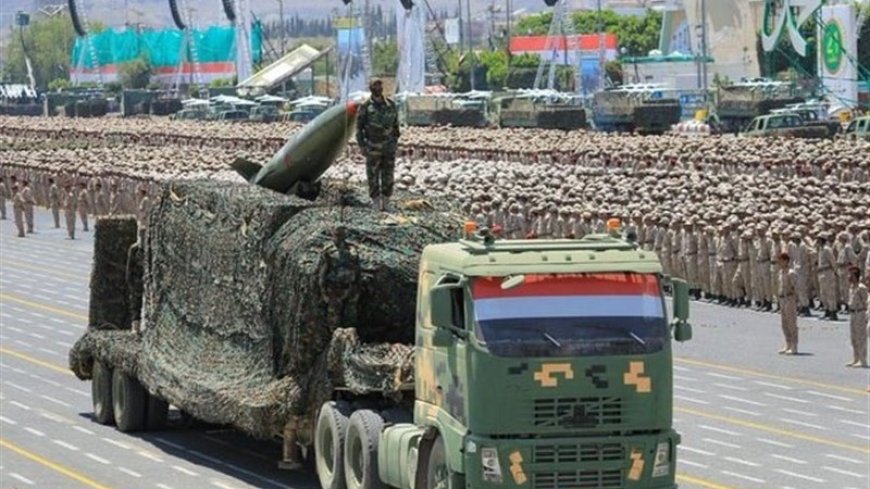Yemeni Missiles and Western Political Hypocrace
Recent events have revealed a clear discrepancy in the West's attitude to the Middle East: Western nations remain noticeably mute on the rising bloodshed in Gaza and the wider consequences of regional resistance movements while yet praising human rights and peace. Deep into occupied territory, Yemeni missile strikes represent more than just military resistance—they constitute a political critique of Western complicity in the continuous aggression against Palestinians.

Recent events have revealed a clear discrepancy in the West's attitude to the Middle East: Western nations remain noticeably mute on the rising bloodshed in Gaza and the wider consequences of regional resistance movements while yet praising human rights and peace. Deep into occupied territory, Yemeni missile strikes represent more than just military resistance—they constitute a political critique of Western complicity in the continuous aggression against Palestinians.
Alarms have rang out throughout Israeli communities for weeks as Yemen's "Palace 2" ballistic missiles have passed through Israeli defenses. These planned acts of resistance against what Yemen believes to be a U.S.-backed Zionist attack on Palestinians are not random. Empowered by their achievements, Yemeni military forces have made it abundantly evident that they will keep supporting the Palestinian cause independent of Western criticism, threats, or bombings.
These missiles transmit multifarious and destructive messages. They first contest Israeli Prime Minister Benjamin Netanyahu's assertions of control over the so-called "Axis of Resistance." Tel Aviv's claim that Hamas is alone and ready for compromises now seems unfounded given Yemen's increasing influence in the coalition of opposition. Second, these strikes highlight the weaknesses in Israel's much- lauded air defense systems, particularly the U.S.-provided THAAD technology, which missed the ballistic missiles. This refutes the billions of dollars Washington has poured into these systems and calls into doubt decades of rhetoric on Israel's technological superiority.
Yemen's participation also emphasizes a more general geopolitical reality: the age of unbridled American dominance in the area is fading. If Yemen suffers more violence, the Yemeni Ansarullah movement has freely said that American interests are justifiable targets. This audacious posture questions not only Israel but also the larger Western alliance, which still keeps Israel free from responsibility by labeling any opposition as "terrorism."
The quiet from Western cities is intolerable. Where are appeals for justice, humanitarian relief, and cease-fires? Rather, while ignoring the suffering in Gaza and the wider consequences of resistance movements throughout the region, the United States and its allies remain concentrated on supplying Israel and defending its conduct.
The Middle Eastern people as well as those of other countries who see through the double standards find this hypocrisy unacceptable. Though expensive, Yemen's disobedience is a sobering warning that the downtrodden will not stay silent. If the West really seeks stability and peace, it has to rethink its unquestioning backing of Israel and focus on the underlying causes of opposition instead of extending continuous cycles of bloodshed.
The Yemeni missiles demonstrate the moral inadequacy of Western political agendas that give power over values first priority and are more than simply weapons; they are evidence of the resiliency of a nation that rejects to allow injustice.













































